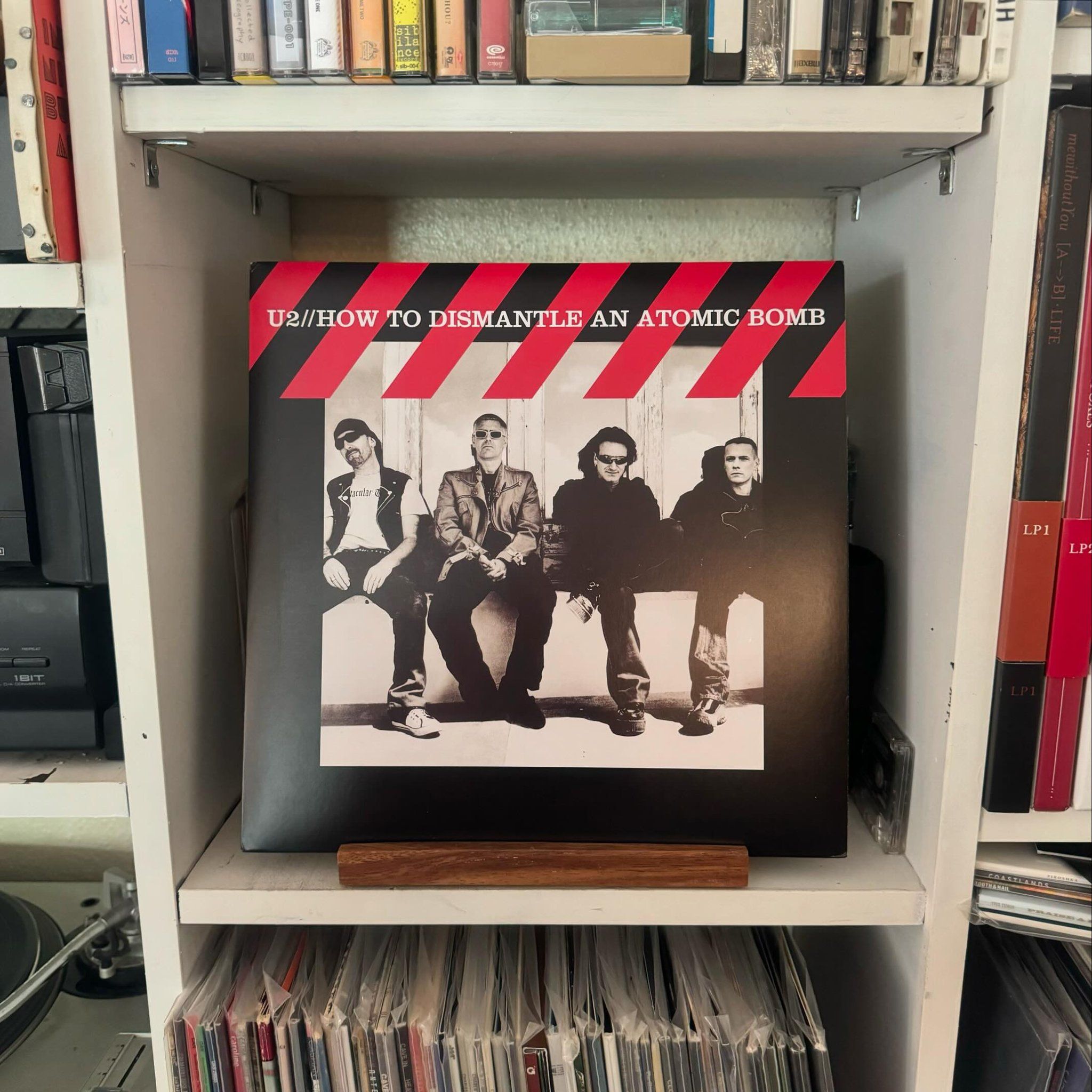
After the success of 2000’s All That You Can’t Leave Behind, something funny happened. Namely, the Rock Revival, led by bands like The Strokes, Interpol, The Killers, and other students of the early 80s post-punk scene.
U2, themselves members of that original class, looked at the rise of these acts, then back at themselves, and sorta said, “didn’t we used to do that?” They then called up Steve Lillywhite, who produced their first three records, and set off to work on what Bono called “our first rock record,” a statement that’s probably rooted more in self-deprecation than accuracy.
In either case, it worked. It was an immediate commercial success, beloved by critics, and netted the group eight Grammys, as well as a few indelible hits. That said, it’s bogged down by some of the same self-consciousness of its predecessor, even if it is a bit more consistent.
I’ll admit that after voraciously consuming their ’90s material for the first time and being initially unimpressed with ATYCLB, How to Dismantle an Atomic Bomb was an even tougher nut to crack for me—especially after seeing one critic compare it to The Unforgettable Fire and Achtung Baby, which I still don’t get. “Vertigo” in particular felt like a “hey, us too!” in response to the Rock Revival happening around them. That feeling wasn’t helped by my initial introduction to it on Fuse TV between videos from The White Stripes and Hot Hot Heat. For a bit, I had totally dismissed this record as another floundering attempt of a band who wasn’t ready to admit that they were past their prime (I wasn’t very kind to ATYCLB for a while either).
But then one day, as I was watching live performances on YouTube (I told you, it’s been a deep obsession), “City of Blinding Lights” autoplayed, and I was immediately spellbound. It was a cavalcade of the best U2isms—Edge’s trademark slide guitar and echo, sweeping dynamic shifts, a hard hitting rhythm section, and one of Bono’s most massive choruses. I was sold.
With “City” recontextualizing my idea of the record, I tried again, this time realizing that that track is far closer to its sonic center than “Vertigo’s” love letter to the Who. Where ATYCLB often felt like the band was trying too hard to avoid their trademarks, Atomic Bomb feels much closer to their classic sound throughout. After “Vertigo” kicks the record off with a, uh, bold take of the Spanish language, “Miracle Drug” and “Sometimes You Can’t Make It On Your Own” immediately drops its irreverence and irony and turns back toward the Joshua Tree.
Save for the heavy-handed rock of “Love and Peace or Else” and “All Because of You,” the record makes great use of their usual bag of tricks without slipping into self-parody. “Crumbs From Your Table,” the plainest example of Bono’s politics put to Edge’s most characteristic guitar tones, sounds on paper like the type of song SNL might make to lampoon the group. Instead, it’s a powerful indictment of the Western world’s treatment of the Global South. Closing track “Yahweh” does nothing to distance them from the frequent dismissal that they sound like worship music—and is often maligned accordingly—but it’s a beautiful song that doesn’t deserve the vitriol it receives.
Throughout the disc, Bono’s lyrics are filled with a sincerity that could easily slip into hamfisted sentimentality. It mostly avoids that, largely thanks to the poignancy of the subject matter. “Miracle Drug” is particularly profound, offering a touching ode to a former classmate Christopher Nolan, who had locked-in syndrome. After tireless advocacy from his mother, they found him a drug that allowed him to move his neck. This allowed him to type using a “sort of unicorn device” attached to his forehead, allowing him to become a celebrated poet. That context isn’t necessary to enjoy the song, but it becomes much more powerful after.
Many of the songs have similarly moving backgrounds, and in my case, reading those backstories is what finally got this record to click. And after ATYCLB’s sometimes awkward embrace of sincerity after a decade of impenetrable irony, Atomic Bomb feels more comfortable in its authenticity. It might not have anything as effortlessly timeless as “Beautiful Day,” but it’s a far more even record, even with its occasional missteps. While it was initially my least favorite of their ’00s output—and aggressively so—it’s certainly working its way up the list—even if it probably won’t top any of their 80s and 90s work in my personal rankings.